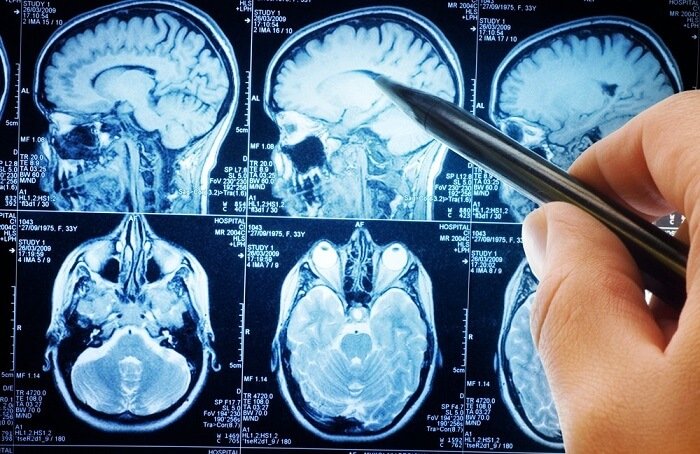
Autistic, Alzheimer’s & Multiple Sclerosis Brain Tissues Have Significant Amounts of Aluminium In Them
Did you know? Significantly high amounts of aluminium have been found in the brain tissue of people with Alzheimer's, autism and multiple sclerosis compared to healthy "normal" brain tissue.
By Arjun Walia | Collective Evolution
There is no shortage of studies demonstrating that aluminium is present in human brain tissue. This is a problem given the fact that aluminium is neurotoxic and wreaks nothing but havoc on biology. This is firmly established in scientific literature. There is no debate on whether or not aluminium exists within human brain tissue, the science is settled. The debate is now focused on how much aluminium is too much. How much aluminium does it take to impact the health of a human being in a negative way?
A study published in the journal Nature compared the aluminium content in human brain tissue of people with Alzheimer’s disease, familial Alzheimer’s disease, autism spectrum disorder and multiple sclerosis with healthy controls. According to the authors, “detailed statistical analyses showed that aluminium was significantly increased in each of these disease groups compared to control tissues.” They go on to mention that,
We have confirmed previous conclusions that the aluminium content of brain tissue in Alzheimer’s disease, autism spectrum disorder and multiple sclerosis is significantly elevated. Further research is required to understand the role played by high levels of aluminium in the aetiology of human neurodegenerative and neurodevelopmental disease.
The researchers used tissue from twenty control brains of healthy individuals to compare against the brain tissue of people who have had a diagnosis of the neurodegenerative conditions mentioned. The fact that all disease groups had significantly higher brain aluminium content than the control group is quite concerning. That being said, it’s not proof that aluminium actually plays a direct role in each of these diseases. The important takeaway from the study and what we know about aluminium toxicology is that there is absolutely no debate, at all, as to the neurotoxicity of aluminium in humans. It’s just not a good thing to have in your body.
The study emphasizes,
Animal models of aluminium intoxication reproduce the neuro-pathologies and neuro-developmental effects of human neurodegenerative disease; if not the diseases per se. Cell models and in vitro studies demonstrate mechanisms of aluminium toxicity known to be involved in human neurodegenerative disease. Perhaps the information that is still missing from understanding of aluminium’s role in each of the diseases compared herein is how much aluminium is too much in human brain tissue. The comparison we have made herein between control brain tissue showing no signs of neurodegenerative disease and the disease groups…is beginning to answer this question. Only further measurements on more donor brains will enable a definitive conclusion to be reached on the role played by aluminium in human neurodegenerative disease.
The authors make it clear that aluminium and its presence in human brain tissue “cannot be without consequence” given everything that’s been discovered about aluminium toxicity. There is a great need for further study here and to determine how much aluminium the brain, and other organs for that matter, can tolerate before there are detrimental effects. These effects may be short term as well as long term, and they may play a role in neurodegenerative disease like the ones the study examine. It’s hard to think that the high aluminium content in the brain tissue of people with these diseases is simply a coincidence, especially given the fact that the aluminium content in “normal” brains is significantly less.
Once you start to see these sort of data together, once you start to see the levels of a known neurotoxic metal accumulate to these levels, it is absolutely inevitable that they will contribute to disease. – Professor Christopher Exley, lead author of the study, taken from the interview below.
Exley is a Professor at Keele University, and arguably the world’s leading expert in aluminium toxicology. Exley and his work is supported by many scientists from around the world, yet he is facing a potential set back with regards to continuing his research on aluminium and disease. One hundred scientists came together and recently wrote a letter of support, stating,
We are writing to express our concern over the possible interruption of research on aluminium and disease conducted by Christopher Exley and his group in your (Keele) University. We feel that Christopher Exley’s work conducted for so many years in line with the previous research of late Pr Birchall at Keele University has been an important service to the scientific community, patients and society in Europe and globally. We firmly declare that Pr Exley has always defended rigorous research independent of commercial conflicts of interest, and has freely carried out his research without any control by any of his sponsors.
You can read more about what’s going on with regards to this situation, and access the correspondence that’s happened between Keele University (Exley’s employer), Exley, and the academics who support his work, here.
Below is a very informative interview with Exley if you’d like to learn more about aluminium and its accumulation within humans. On a side note, ask yourself, what products and substances may contain aluminium that could be contributing its accumulation in various human organs like the brain?
How To Remove Aluminium From Your Body?
Toxic Metals are almost everywhere. They are in the foods we eat, the air we breathe, the water coming out of our faucets, metal cookware, old paint, aluminium cans and more. Most of us are carrying around heavy metals that have been burrowed in our tissues for many years…Click here to read the full article.
This article (Autistic, Alzheimer’s & Multiple Sclerosis Brain Tissues Have Significant Amounts of Aluminium In Them) was originally published on Collective Evolution and is published under a Creative Commons license.
